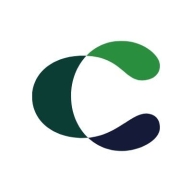

Contrast Security Assess and GitGuardian Public Monitoring compete in the security software category. Contrast Security Assess seems to have the upper hand due to its integration ease and application security testing capabilities.
Features: Contrast Security Assess offers robust application security testing capabilities, ease of integration, and accurate testing methods. GitGuardian Public Monitoring detects secrets and credentials in public repositories, provides real-time monitoring, and focuses on code security in public repository oversight.
Room for Improvement: Contrast Security Assess could enhance reporting granularity, improve documentation, and refine user interface elements. GitGuardian Public Monitoring needs deeper integration with development tools, expanded alerting features, and improved initial configuration steps.
Ease of Deployment and Customer Service: Contrast Security Assess is straightforward to deploy with responsive customer support, reducing implementation time. GitGuardian Public Monitoring needs more initial setup effort but offers good customer service.
Pricing and ROI: Contrast Security Assess balances cost and value with a significant initial investment leading to long-term payoff. GitGuardian Public Monitoring is cost-effective, offering immediate value for its public monitoring features, resulting in a high perceived ROI.


Contrast Security is the world’s leading provider of security technology that enables software applications to protect themselves against cyberattacks, heralding the new era of self-protecting software. Contrast's patented deep security instrumentation is the breakthrough technology that enables highly accurate assessment and always-on protection of an entire application portfolio, without disruptive scanning or expensive security experts. Only Contrast has sensors that work actively inside applications to uncover vulnerabilities, prevent data breaches, and secure the entire enterprise from development, to operations, to production.
GitGuardian Public Monitoring allows real-time GitHub scanning and alerting to uncover sensitive company information hiding in online repositories. It monitors both organization repositories and developers' personal repositories. The solution gives visibility to developers and security teams on this very critical blindspot that are the organization developers' personal repositories on GitHub (80% of leaked corporate secrets on public GitHub come from developers’ personal repositories).
GitGuardian Public Monitoring is particularly interesting for companies with large development teams (above 200 developers) and modern development practices.
GitGuardian Public Monitoring cover 350+ API providers, database connection strings, private keys, certificates, usernames and passwords and intellectual property. It uses sophisticated pattern matching techniques to detect credentials that cannot be strictly defined with a distinctive pattern (like unprefixed credentials). The algorithm has a high precision (91% “true positive” feedback following our alerts, as reported by our users.)
The alerting is done in real-time (a few seconds after the secret was publicly exposed) which allows fast remediation involving in a collaborative way developers, security teams and operations.
GitGuardian Public Monitoring also allows red teams and pentesters to proactively look for sensitive information by performing complex queries on 12 billion documents and metadata from more than 3 years of GitHub history.
GitGuardian Public Monitoring scans public GitHub activity in real-time, helping organizations detect sensitive information leaks in source code repositories. Our solution gives Threat Intelligence and Security teams full visibility over their organization’s public GitHub Attack Surface, by monitoring both organization-owned repositories and developers' personal repositories.
With 80% of secrets and credentials leaks on public GitHub finding their source in developers' personal repositories, GitGuardian for Public Monitoring helps organizations address a critical security blind spot.
With real-time incident notification, Threat Intelligence and Security teams are guaranteed to reach the incident scene before everyone else and take action to mitigate the threat of breaches and intrusions.
We monitor all Application Security Tools reviews to prevent fraudulent reviews and keep review quality high. We do not post reviews by company employees or direct competitors. We validate each review for authenticity via cross-reference with LinkedIn, and personal follow-up with the reviewer when necessary.